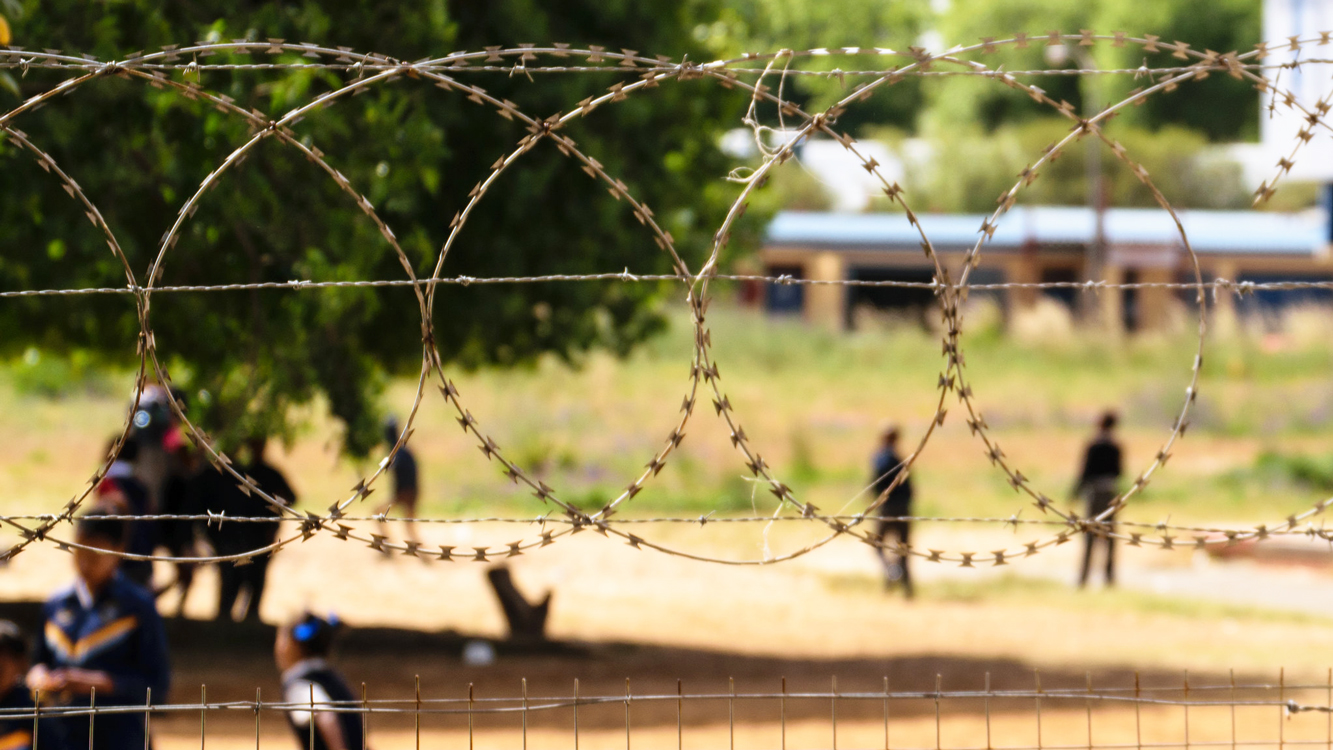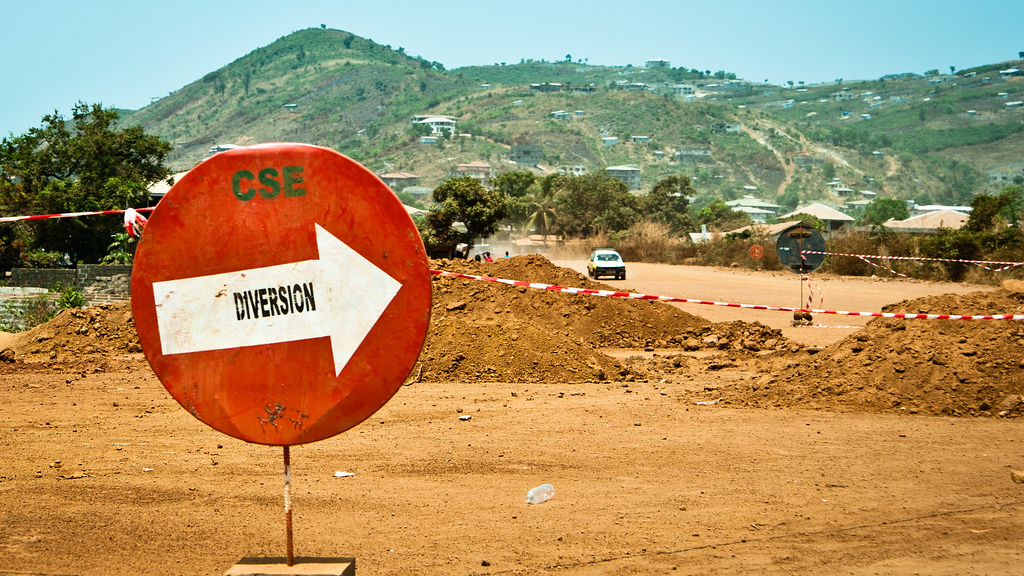Despite genuine efforts for contemporary research on the global South to include more participatory approaches with local researchers, guiding frameworks and research agendas are still usually developed by core researchers in the global North. This externally imposed approach to knowledge production stunts new ways of thinking. When local views rarely find their way into larger debates, how can we trust the resulting narratives?
This article is part of the #PublicAuthority blog series with the Centre for Public Authority and International Development at LSE.
Since the start of the Congo Wars in 1996, different narratives have tried to make sense of the roots, nature and complexities of violence and conflict. Public and academic debate first concentrated on the military involvement of neighbouring countries. After the beginning of the second Congo War in 1998, control over natural resources (mostly minerals) was increasingly considered the crucial driver of violence. As was argued, warring factions’ ambitions and strategies were guided by economic incentives, with ‘conflict minerals’ as the key incentive to keep their war machines going. The focus on resources has gradually also been accompanied by international coverage of high levels of sexual violence, leading to the image of the Democratic Republic of Congo as the ‘rape capital of the world’.
However simplistic or reductionist such narratives on conflict minerals or sexual violence might be, they have had a major influence on international public opinion and international policy responses to Congo’s crisis. This is despite the existence of growing and rich academic literature that shows the multi-layeredness of the causes and consequences of the Congo Wars; the connections between regional, national and local levels and actors; the effects of unresolved conflicts around (access to) resources (including land), citizenship, local authority and identity; the militarised power games between different elite-networks; the effects of existing peacebuilding policies, and so on.
Yet, however little these narratives might have contributed to a better understanding of the scope and protracted character of this conflict, the fact that most of these readings come from outside observers is far more problematic. Whether they are the result of sensationalist journalists or smartly developed campaigns by international NGOs, they hardly ever give a voice to Congolese perspectives or readings. Even more, they limit the space of thinking of Congolese observers, who are forced to reproduce existing narratives if they want to be heard.
But isn’t this also the case for academically produced knowledge? Isn’t the bulk of analysis also being written outside of the Congo and isn’t this literature imposing its own ways of thinking and framing on those involved in the process of data collection and analysis? To what extent can collaborative research projects build new perspectives and avoid the simple reproduction of dominant epistemologies and repertoires?
Having been involved for more than a decade now in such collaborative projects, I have to acknowledge that, in most cases, different layers of collaboration exist that implicitly confirm underlying logics of knowledge production. Despite the genuine efforts being made today to start from more participatory approaches, research agendas and guiding conceptual frameworks are still usually developed by a core group of researchers (in most cases based in the global North) and taken as a given by the rest of the research team (in most cases yet not exclusively based in the global South). This is not per se because there is no space for discussion or debate, but because one’s own positionality often refrains them from doing so.
As a consequence, these agendas and frameworks often are simply taken from granted. But the backgrounds, ways of thinking, registers and dominant epistemologies leading to them are also constantly being reproduced and guided by existing dynamics of power defining academia. It explains why, even in collaborative projects, those being part of the core research team continue to decide what should be on the research agenda and why researchers and research assistants based in the South tend to position themselves as mere facilitators and data collectors, and to reduce their own space of navigation in the field of knowledge production. This often leads to frustration from both sides. For those in the core group, it can be challenging to deal with what is conceived as a lack of activism and taking of ownership of the research process from those researchers and assistants based in the South. For those based in the South, implicit or experienced power relations, lack of financial autonomy and implicit dominant positioning of those in the North can be equally disturbing. (These issues are further discussed in our Bukavu Series.)
These issues have gained increased visibility in the debates on the politics of research exploitation and the decolonisation of knowledge production. What is receiving limited attention in these otherwise rich discussions is how these issues contribute to a specific framing of what we study.
What is considered being ‘the field’ in eastern Democratic Republic of Congo is largely based on perspectives, approaches, paradigms, concepts and theories externally being produced and imposed. At the same time it is the result of a specific way of ‘doing research’, of specific epistemologies, research values and practices. These explain why local views hardly ever find their way into larger discussions and debates. How researchers in the South look at their own world is largely defined by dominant perspectives produced elsewhere. These perspectives are either strategically, opportunistically or because of existing power relations often just accepted as such, even if they do not correspond with their own views. As a consequence, in some cases there is an implicit distancing from the research activities they are a part of. These dynamics, in the end, engender narrowing effects on how we look at realities in places we are trying to understand. Existing research collaborations often equally prevent us from making real progress in the understanding of, and the redefinition of views on, existing realities.
Making more visible all those who contribute to the research cycle, providing them with decent remuneration and implementing solid security policies, however important these are, will not suffice to reverse the dominance of external frameworks of thinking. To come to a real co-production of knowledge, more is needed than tackling power dynamics guiding research and giving voice to those silenced today. Changing existing logics force us to rethink our own position as scholars. To what extent are researchers in the global North ready to allow for collaborators in the global South to challenge their frameworks and views? And besides creating space for obvious self-critique, how should we foster more pro-active roles and claims of ownership, also by those researchers based in the South?
Real collaboration is not only about doing things together at each stage, including the project design and proposal writing; it implies questioning reference frameworks and practices of thinking we rely on. Indeed, turning the production of knowledge into a genuinely shared enterprise can only be successful when bringing in new people (or the same people in new ways), adding new ideas and perspectives and building a true dialogue between equitably approached perspectives. It is about creating and claiming space for and by these new voices.
Photo: OÔcha, North Kivu region, Democratic Republic of Congo. Credit: World Bank / Vincent Tremeau. Licensed under CC BY-NC-ND 2.0.






A good article, but sadly it is more complex than the explanation in it. In my experience, many local researchers and NGOs leaders tend to follow whatever comes from those who fund the projects, workshops etc. even when they know it is a meaningless exercise. Real hard work, local experience and knowledge are rarely communicated or shared as it may not fit in the conceptual framework of a given project. The reality is always too messy, emotionally laden and led by ego-driven individuals.
You are precisely right
True this. Was part of a collaborative research project happening in India and Kenya….ended in premium tears because of these factors…
Very insightful…more often than not, the global north academia get funding from donors who may have an agenda or a position on a major global issue and use the researchers based there to go to the global south and make the hypotheses come true. The global south local researchers just let them do whatever they want so long as the cheques keep coming…which is sad because we are kind of engaging in “research diplomacy”. Alot of academic research opportunities get lost this way